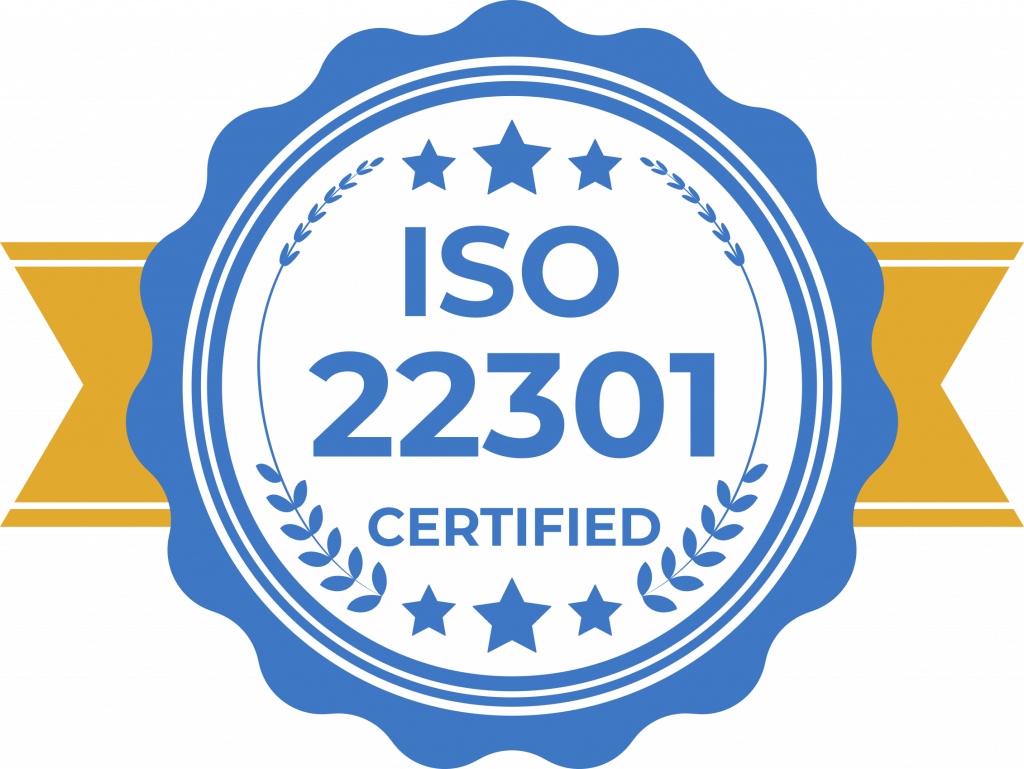Internal auditors and Lead auditors for ISO 22301

Lead Auditor Course for ISO 22301:
1. Advanced ISO 22301 Knowledge: A deeper understanding of the ISO 22301 standard is provided, including its interpretation, implementation challenges, and best practices for achieving business continuity objectives.
2. Audit Leadership and Management: Lead auditors need strong leadership and management skills to oversee and coordinate audit activities effectively. Topics include team management, conflict resolution, and decision-making.
3. Audit Planning and Preparation: Lead auditors learn how to plan and lead audits of BCMS, including developing audit schedules, allocating resources, and ensuring audit readiness.
4. Audit Execution and Reporting: Lead auditors are responsible for leading audit teams, managing audit activities, and overseeing the audit process from start to finish. They also develop skills in reporting audit findings concisely and accurately.
5. Managing Non-Conformities: Lead auditors learn advanced techniques for identifying root causes of non-conformities, recommending corrective actions to address business continuity risks, and preventing recurrence of incidents.
6. Communication and Stakeholder Management: Effective communication is crucial for lead auditors. They learn how to communicate with auditees, clients, and regulatory authorities professionally and diplomatically.
7. Ethics and Professionalism: Lead auditors must adhere to high ethical standards and maintain professionalism throughout the audit process. This includes understanding auditor ethics, conflicts of interest, and confidentiality requirements.
Certainly! ISO 22301 is an international standard that provides a
framework for establishing, implementing, maintaining, and continually
improving a business continuity management system (BCMS). Similarly to other
ISO standards, there are courses designed to train individuals as internal
auditors and lead auditors for ISO 22301. Let's delve into the details of these
courses:
Internal Auditor Course for ISO 22301:
1. Understanding ISO 22301: Participants learn about the
requirements and structure of the ISO 22301 standard for business continuity
management systems (BCMS). This includes understanding its clauses, key terms,
and the overall purpose of a BCMS.
2. Audit Fundamentals: Basic principles of auditing are covered,
including the audit process, types of audits, and the role of auditors in
assessing BCMS.
3. Audit Planning: Participants learn how to plan and prepare for
internal audits of BCMS. This includes defining audit objectives, selecting
audit criteria, and assembling an audit team.
4. Conducting Audits: Techniques for conducting effective audits
of BCMS are taught. This includes methods for gathering evidence, interviewing
personnel, and reviewing documentation to assess compliance with ISO 22301
requirements.
5. Reporting and Communication: Participants learn how to report
audit findings accurately and effectively. This includes documenting
non-conformities, observations, and opportunities for improvement, and
communicating audit results to relevant stakeholders.
6. Corrective Actions and Follow-Up: Understanding the corrective
action process is crucial. Participants learn how to identify non-conformities,
recommend corrective actions to address business continuity risks, and verify
the effectiveness of corrective measures.
7. Continuous Improvement: The course emphasizes the importance of continuous improvement in business continuity management. Participants learn how internal audits contribute to identifying opportunities for reducing risks and improving BCMS performance.
Both Internal Auditor and Lead Auditor courses for ISO 22301 typically include practical exercises, case studies, and assessments to reinforce learning. Upon successful completion, participants may receive a certificate or qualification recognized by relevant accreditation bodies. These courses are essential for individuals who are responsible for auditing or managing business continuity management systems within organizations.

